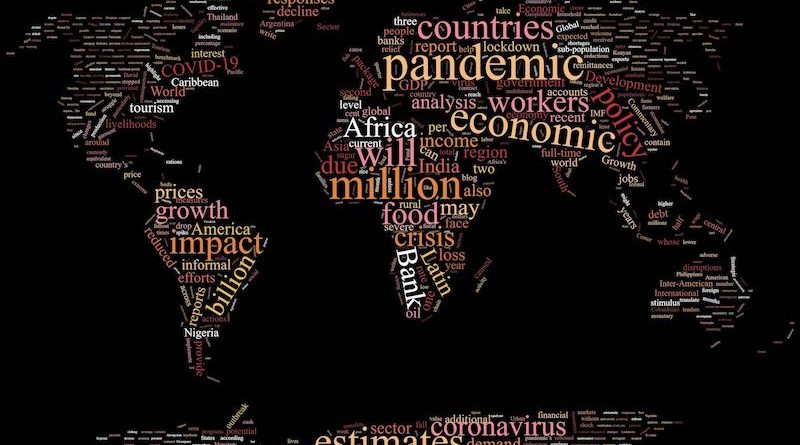
Minimizing risks related to pandemics to better protect communities
Pandemics are unpredictable but recurring events that have severe consequences on human health, wellbeing and livelihoods. COVID-19 is an example of a pandemic that has inflicted unprecedented damage on an unimaginable scale. It has and still is, claiming millions of lives, and placing a heavy toll on communities, health workers, health systems, economies and societies.
The repercussions will be felt for years to come. The pandemic has also stalled our collective progress towards the Sustainable Development Goals. In the WHO European Region, some 54 million COVID-19 cases and 1.1 million deaths have been reported to date. The pandemic has had a severe impact on economic development in the 53 countries in the WHO Region.
In the European Union, the unemployment rate has increased significantly and gross domestic product in 2020 dropped by 7.4%. But the impact of the virus has also hit communities unequally, with the more affluent parts of the population suffering less, in terms of the economic effects and health outcomes.
COVID-19 has compounded inequities. The pandemic offers several lessons: some of them timely, but none of them can we afford to ignore. It has highlighted the need for preparedness, including the use of innovative early warning systems that allow for early identification and prompt response, as well as for clearly-defined command-andcontrol emergency response mechanisms, at sub-national, national, regional and global levels. WHO recognizes the interdependence of health emergency preparedness, health system strengthening and essential public health functions. We provide guidance and coordinate action to overcome challenges and minimize risks in pandemic responses. This includes addressing inequities with the aim of leaving no one behind. The International Health Regulations (IHR) 2005 are what WHO bases its work on. They play a critical role in strengthening, developing and maintaining country capacity to respond effectively to public health risks and emergencies of international concern.
The IHR are a legally binding instrument of international law that create rights and obligations for countries, requiring them to establish and maintain core capacities for surveillance, risk assessment and responses. It is then WHO‘s role to coordinate the implementation of the IHR and support countries in building capacity.
The health emergency we currently face stresses an urgent need to revisit the Regulations – and WHO has already started consultations with its members to that end. In the WHO European Region, our roadmap until 2025, is the European Programme of Work, “United Action for Better Health”, which prioritizes protecting people against health emergencies.
The Programme focuses heavily on learning the lessons of COVID-19, in order to improve WHO’s governance and operational management of emergency responses. Going forward, we place particular focus on immunization.
This is one of four flagships of our Programme of work – vital both today and in the future, to help prevent and decrease the risks of infectious diseases. Looking ahead, the Pan-European Commission on Health and Sustainable Development, established last year, is another source of inspiration, identifying ways to better protect communities. It is an independent, interdisciplinary group of leaders, tasked with rethinking policy priorities in the light of pandemics. The Commissioners write that “previously, calls for spending on many of the thing things that would have stopped this pandemic in its tracks, or greatly mitigated its impact, have been rejected,” and then call for drastically increased investment of e.g. governments and development banks in early warning and response systems, and measures to reduce threats. Among its recommendations is to establish a Global Health Board at the G20 level, modelled on the Financial Stability Board launched in the wake of the global financial crisis. This could then evolve into a Global Public Good Board.
The Commission also calls for the concept of One Health to be fully operationalized; demanding a stronger focus on addressing the interdependence of human, animal and environmental health. The Commission’s findings and recommendations will be made public in September 2021.
WHO works with partners on multisectoral coordination and efforts to combat health threats, using the One Health approach. In April 2021, this commitment culminated in the establishment of a tripartite Regional One Health Coordination Mechanism for Europe and Central Asia.
Through this mechanism, FAO, OIE and WHO provide leadership and direction, convene stakeholders and partners and coordinate support across the Region.
The current pandemic has made a strong case for Universal Health Coverage to help health systems and populations alike become more resilient. This crisis has also provided us with a strong argument for multilateralism: a judicious response to a global threat. Rethinking policy priorities beyond health policies is pivotal, and so is acknowledging the interconnectedness of sectors, stakeholders and countries. It is relatively simple. To minimize risks and protect communities from future pandemics and public health emergencies – we must act globally and learn our lessons. Health security threats will continue to occur in ways that will challenge even the most advanced health systems. What may prove more complicated is to collectively shoulder responsibility and implement the many lessons learned from COVID-19 – to break the cycle of events that allowed this pandemic to happen in the first place.




